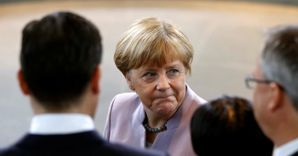the president of The Eurogroup Jeroen Dijsselboem has frozen the “turning point” of the european Commission in favour of a supermanovra budget expansive 50 billion. Was this the meaning of his statements at the hearing of the commission economic and monetary affairs of the european Parliament.
in The Eurozone, he argued, “is not yet stable enough” to proceed on a path of expansion of the balance sheet, and such a path can be taken only by the Countries “that have a space budget to be able to do.” And in the first place, he argued Dijsselboem, the task of the Commission is to comply with the rules of the stability pact, “to hold together the euro zone.
The proposal of an expansive fiscal stance for the eurozone, and opinions with recommendations on the budgets of Countries constitute a “package” that “takes full account of the requirements of the stability and growth Pact and of broader concerns about the sustainability of the budget” and “signals the need to sustain the recovery in this moment.” A spokesman for the Commission Eu replication to the criticism expressed by the president of the Eurogroup.

The future of Europe in the hands of Angela
in all probability this is just a taste of the discussion that will have the finance ministers next Monday in Brussels. The “turning point” of the community has already been rejected by the German finance minister, Wolfgang Schaeuble. According to Dijsselbloem, “it is important that they are complied with the commitments in order to achieve a balance budget in structural terms”. For the president of the Eurogroup is the first duty of the Commission is “to enforce the stability pact,” and between this task and the proposal of a “turning point” expansive there may be “some tension”. Dijsselbloem has deliberately reminded that the Eurogroup is not only a minister, but there are 19. In contrast to direct with the commissioner for economic affairs Pierre Moscovici, presenting the proposal of an action in the expansive equal to 0.5% of gdp in the euro area, had said that the Commission is acting as a “minister” of t he euro zone.

the Eu, Renzi: Dijsselbloem does not know Italy. We’re going to change Italicum all together
“Dijsselbloem is taking a gigantic blunder, which it does fairly regularly”, said the minister of economic Development, Carlo Calenda. “Do not understand that the question is not are budget constraints, but the fact that Europe is in the midst of the challenges extremely difficult, the first of which is a clear alienation of the citizens and need to make a large investment plan to transform it and need a new deal at the european level”.
Yesterday, the president of the Ecb Mario Draghi had not a mandate to the Commission encouraging signs on the turn of expansion in 2017 and 2018, even if he, himself, two and a half years ago, said that “it would be useful to have a discussion on the position of the balance sheet total (the fiscal stance) in the euro area, coordination is strong between the various national positions would also allow us, in principle, of having a budgetary position overall for the Eurozone is more favourable to growth”. In the european Parliament, Draghi emphasized more the element of compliance with the stability pact, adding that the directions of policy of active by the Commission “are not binding”.

Dragons: in the world of political uncertainty and significant economic
Dijsselbloem claimed today the same things with higher hardness (and skepticism). “I’m not a hard calvinist, I’m a catholic, but it is a fact that we have experience of how important it is to the credibility of the pact”, he annotated. In reality, the only people to have ability to maneuver are the countries that have the space of budget to be able to do that, however, cannot be forced by anyone.
That there are the necessary political conditions for Berlin to bow publicly to the evidence that they can do more for domestic growth and the euro area (Germany is in surplus in its budget in nominal terms by 2014, and in structural terms by 2013), it is evident: nothing will change, if the change to the elections next fall. And so in the Netherlands. It will then be interesting to see how the Eurogroup, if he follows the traditional line that excludes the activism of the budget over the practice of neutrality of the impact on growth, he baked the message. Pier Carlo Padoan wishes to support the turning point of the community is obvious, but the tones it will also depend on the outcome of the referendum, of course.
© Reproduction reserved
No comments:
Post a Comment